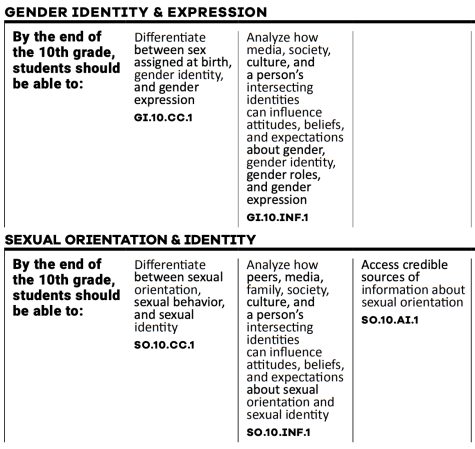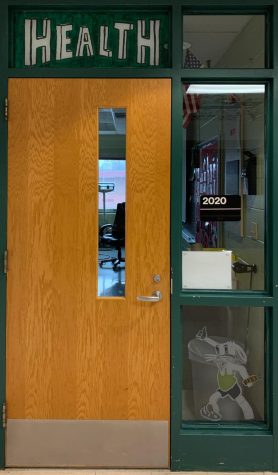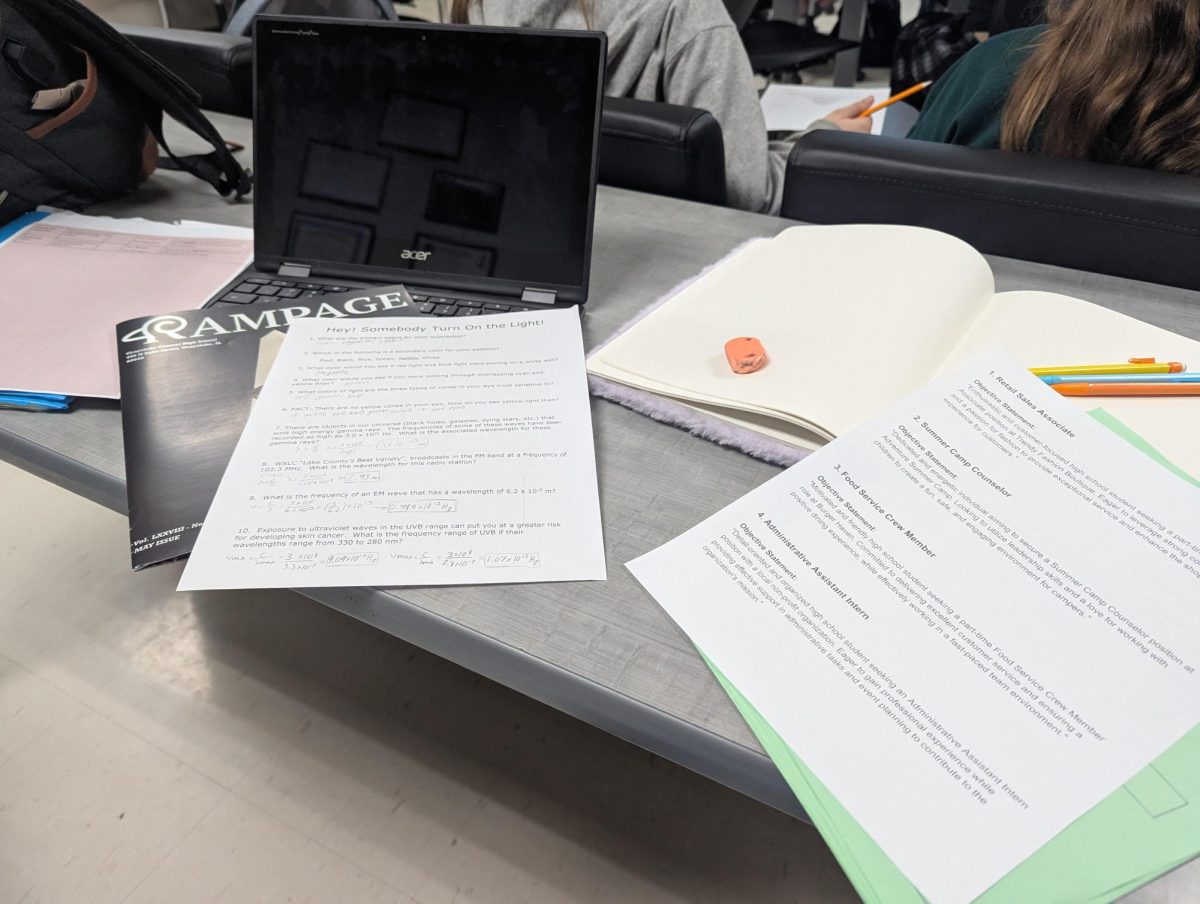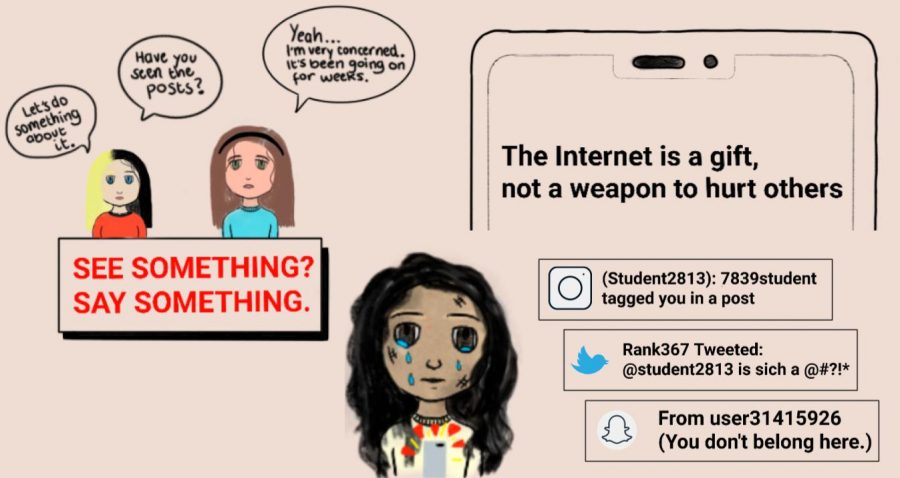Grayslake Health Course Falls Short of Incorporating LGBTQ+ Standards
Grayslake Central’s sophomore health course grapples with challenges in its implementation of new sex education standards
March 1, 2023
Seven months after a 2021 law changed Illinois sex education standards, Grayslake Central High School’s health curriculum has fallen short of fully implementing new standards regarding sexual orientation and gender identity in the course’s current curriculum.
On Mar. 31, 2022, the Centers for Disease Control and Prevention released the Adolescent Behaviors and Experiences Survey (ABES) which analyzed the state of youth health across the United States. The “Mental Health, Suicidality, and Connectedness Among High School Students During the COVID-19 Pandemic” supplement of the ABES analyzed the state of youth mental health following the COVID-19 pandemic. In its report, the CDC found that significant disparities in suicidality and poor mental health exist across sex, race and ethnicity, and sexual identity.
The supplement reports, “The prevalence of having seriously considered attempting suicide and attempted suicide was highest among gay, lesbian, or bisexual students, followed by other or questioning students. Heterosexual students had the lowest prevalence.”
Mental health effects were not the only measure by which gay, lesbian, or bisexual adolescents were disproportionately affected. Gay, lesbian, and bisexual respondents reported being approximately three times as likely to have abused illicit drugs than their heterosexual counterparts in the same study. Forced sexual intercourse, sexual violence, and sexual dating violence were reported as occurring three times as frequently as heterosexual respondents, and bullying at a rate of two and a half to one.
According to a 2021 Gallup poll, one-in-five Gen Z adults identify as something other than heterosexual. Senate Bill 818 was introduced in the Illinois Senate on Feb. 25. The bill included provisions to amend the Illinois K-12 sexual education standards to promote inclusivity of minority sexual orientations and gender identities, among other goals. The bill was passed on May 28, 2021 and enacted into law on Aug. 20, 2021.
The legislation directed the Illinois State Board of Education (ISBE) to adopt new health curriculum standards to comply with the law. ISBE adopted the National Sexual Education Standards (NSES) by the start of the 2022-23 school year, as stipulated by the legislation.

Grayslake Central health teacher, Jeanna Beerbower, has taught the course for 21 years. Beerbower was aware that changes to the health standards may occur due to SB0818 being passed in May of 2021.
“I remember hearing things about the Governor of Illinois talking about wanting to expand what was being taught because there was some pushback in the elementary schools. Some of it was content that, as a kindergartener, might be a little bit too much when it came to sexual health,” said Beerbower.
Assistant Superintendent of Teaching, Learning, and Innovation at Grayslake Community High School District 127, Dr. Tracey Landry said, “District 127 has not formally adopted these standards in their entirety. District 127 infused only the 10th grade NSES standards into our existing structure, which included changes only to the identity strand of the sex ed standards.”
In an early August meeting with all four District 127 health teachers and both school’s Associate Principals for Curriculum and Instruction, Landry explained the district’s expectations for health teachers to implement the new standards by the start of the 22-23 school year.
In the 15 days between ISBE’s implementation of the NSES and the start of the school year, health teachers from both school buildings met to discuss the curriculum changes. Beerbower, fellow GCHS health teacher Theresa Curtis, Grayslake North health teacher Melissa Smith, and an assistant GNHS health teacher worked together to compile activities and amend lesson plans to cover the new standards.
Reflecting on that meeting, Beerbower isn’t satisfied with the direction health teachers were offered in August. “Are we doing too much? Are we doing too little? There are times I think I would probably want a little bit more guidance as to what exactly they want covered. The one thing that I always try to do as a teacher is to make sure that all students in my class feel comfortable and that they’re being treated with the [same] respect that I hope they think all their teachers are treating them [with],” Beerbower said. “There are times – and I’ve talked to Mr. Schaal about [it] – ‘What does this look like for me?’ Because it’s also new for me. I’ve been teaching health for 21 years and I get, ‘Okay, now you do this law and now you do this one,’ and then I’m like, ‘Okay, well, am I doing it justice? Am I doing it the best way that I can?’”
Beerbower discussed the ways in which she is currently attempting to implement the new NSES standards in class. Beerbower said, “Where’s the exact unit or topic that you put in any of these? I mean, none of them are easy to talk about. I talked to [GCHS Prevention and Wellness Coordinator] Mrs. Oldenburg…We do a three day program on mental health, that touched very specifically on depression and suicide. Mental health professionals know that suicide rates, among those that are struggling with identity, are very, very high, especially if they’re not accepted at home. And so I asked her, ‘Is there a way that we could tie that [in], because we’re already talking about it?’ That would be a really good way to kind of bring those two topics together.”
When asked about her role in covering the newly implemented standards, Oldenburg said, “I’m very conscientious of making sure we’re picking programming that is representative and helpful to our student population. What curriculum was picked, and taught specifically around sex education? I have no idea.”
In a joint interview, Beerbower posed the question of whether Schaal believes there should be more “clear cut” expectations for what should be taught in the classroom. Schaal said, “When you have that, ‘Hey, this is what we’re going to cover. This is the generality,’ we can kind of go at it and see. One class might be different from another also. Every class may be a little bit different. But we can really get the basis of the general rule or law covered. So I trust that the teachers in this department, specifically health, do a great job.”

One area of implementation which Schaal expressed concern for was the content’s “hot topic” nature. “[It’s] a hot topic, because there’s a lot of misinformation out in general media and social media sites,” said Schaal.
Schaal has not received any communication from parents regarding the new standards specifically. “When I say it’s a hot topic, it’s because it’s politically driven. It’s politically charged. So there’s extremists on every side and everybody hears this thing, and goes, ‘Oh, my gosh, this is what they’re gonna do.’ That’s not necessarily the case,” said Schaal.
Beerbower and Schaal have reached out to their professional peers to discuss questions raised by the new standards, and the lesson planning process.
Beerbower collaborated with health teachers within the district to develop new lesson plans for the start of this school year and Schaal has brought up questions concerning the new identity topic strand at a suburban physical education department chair conference this February.
In discussing improvements to the curriculum in the future, Beerbower said, “Improvements – materials that we would either use in class, lecture or activity based [materials], materials that we could give out. I think collaborating with other schools and other educators [is] literally the best way for teachers to learn.”
Reflecting on possible additions to the Health curriculum in the future, Schaal said, “Maybe it’s bringing a speaker in to talk to the classes, maybe it’s bringing in a speaker to talk to all students, those are things that we’re going to look at to see. Ultimately, we want to make sure every student is comfortable. We want every student to feel comfortable in class, not afraid to ask a question, not afraid to talk to a staff member.”
Despite efforts to better understand the standards and how they should be taught, Schaal was unfamiliar with some of the topics covered in the NSES. During our interview, the term “queer” was used in conversation, a word once considered derogatory, that has since been reclaimed by the LGBTQ+ community. Queer describes gender identities other than cisgender and sexual orientations other than heterosexual.
“Queer is an actual term that we’re using? I thought that was an offensive term. That shows you how far off I am from some of this stuff. I don’t think we’d ever use a term like that,” said Schaal.
Schaal said resources that help health teachers implement the standards were difficult to locate. “I think one of the hard things about online resources, and I’m literally reading the standard here: ‘Access credible sources of information about sexual orientation,’ trying to find a credible resource online – there’s so many, so how are we going to present something to students? There’s a lot of credibility that has to go through that,” said Schaal.
Schaal and Beerbower were unaware of a list of pre-vetted online sources made accessible on the ISBE website. “They just need to get the resources out better…just send them to the health teachers in the state of Illinois, you know, just simple things like that could be a lot more useful,” said Beerbower.
Both Beerbower and Schaal shared their frustrations with the current process by which new standards are implemented. Instead of a system which requires stakeholders, as Schaal said, to “figure it out,” the two would prefer a process in which the specific expectations of the legislature, regulator, and school boards were communicated clearly and in greater detail to the educators responsible for teaching those standards.
The process for building on standards from previous grades comes with its own challenges. In the interview, the two described their experiences with the implementation of Erin’s Law – an Illinois law that requires public schools to provide child sexual abuse prevention education for children in pre-kindergarten through twelfth grade.
“For example, kids are supposed to get Erin’s Law kindergarten through twelfth grade. So when I asked them, ‘How many of you know [what Erin’s Law is]?’ – They should know what Erin’s Law is, if they’ve gotten it…I might have a third of my students raise their hand. And by the time they see me they should have had it nine times.”
Schaal added, “Or, it’s – for lack of a better term – it’s a ‘drive by.’ Erin’s Law says this – ‘Okay. I spoke in class; I covered it. Next.’”
Beerbower and Schaal check student understanding for the majority of class content, but face challenges when attempting to apply similar methods to new standards.
Schaal said, “When you throw something in on August 1st and say, ‘Okay, here’s the new one,’ we have to look and focus on where we’re at…We can’t keep adding and piling those in, because we’ll never get to everything else…There’s just time for things to be implemented. That can’t happen in six weeks, eight weeks, or longer. There’s some things that need a little bit of time to get to. And when they set new standards, it’s almost like you’re grandfathered in, right? And you can’t expect everybody to go back.”
As many as 174 students from the 2022 fall semester and 179 students in the spring semester are not currently receiving the full breadth of the NSES identity topic strand, however Schaal and Beerbower are open to improving the curriculum to meet the standards now required by Illinois law.





































Camryn M • Mar 13, 2023 at 10:47 am
Very well done- so glad we’re bringing important topics to light.
CB • Mar 10, 2023 at 8:26 am
So well written!!! Way to bring this to light!
Spencer • Mar 9, 2023 at 1:19 pm
you did it! nice work.